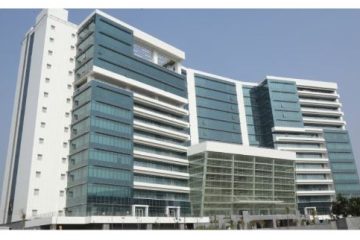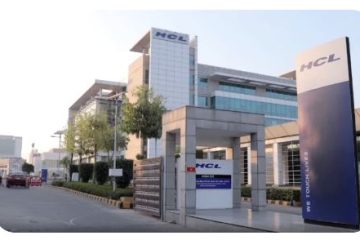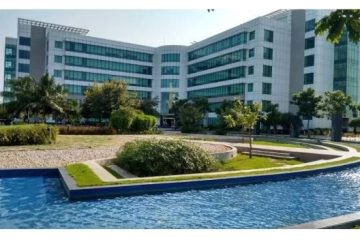
Introduction: Waste management is a global environmental challenge that requires sustainable solutions to reduce the impact of waste on our planet. One such solution is composting, a natural process that transforms organic waste into nutrient-rich soil amendment. Composting is a circular economy approach that not only diverts organic waste from landfills but also produces valuable compost that can be used in agriculture, horticulture, and landscaping. In this article, we will delve into various waste composting technologies that are gaining momentum worldwide and their benefits in addressing the waste crisis.
Traditional Composting Traditional composting is a natural process that involves the decomposition of organic waste by microorganisms, such as bacteria, fungi, and insects, in the presence of oxygen. Organic waste, such as food scraps, yard waste, and agricultural residues, is collected and piled in designated composting sites or facilities. The pile is regularly turned to aerate and mix the waste, creating an optimal environment for decomposition. Over time, the organic waste breaks down into nutrient-rich compost that can be used to enrich soil and promote plant growth.
Vermiculture Vermiculture, also known as worm composting, is a type of composting that involves the use of worms to break down organic waste. Certain species of earthworms, such as red wigglers, are voracious eaters and can consume organic waste at a faster rate than traditional composting methods. Vermiculture is typically done in small-scale systems, such as bins or containers, where the worms are introduced to the organic waste, and they naturally process it into nutrient-rich worm castings, which are highly valuable as a soil amendment.
In-Vessel Composting In-vessel composting is a controlled and accelerated composting process that takes place in enclosed containers or vessels. This method allows for precise control of temperature, moisture, and airflow, which accelerates the decomposition process and produces compost in a shorter time frame compared to traditional composting. In-vessel composting is suitable for large-scale operations and can handle a wide range of organic waste, including food waste, yard waste, and agricultural residues.
Aerated Static Pile Composting Aerated static pile composting is a variation of traditional composting that involves the use of aeration systems to improve the decomposition process. Organic waste is piled in long rows or windrows, and aeration pipes are inserted into the pile to provide oxygen and improve airflow. The pile is periodically turned to ensure even decomposition and optimal aeration. This method is suitable for medium to large-scale operations and can be used for a wide range of organic waste types.
Table summarizing different waste composting technologies:
| Waste Composting Technology | Description | Scale | Suitable Waste Types | Benefits |
|---|---|---|---|---|
| Traditional Composting | Natural process involving decomposition of organic waste by microorganisms in the presence of oxygen | Small to Large | Food scraps, yard waste, agricultural residues | Diversion of organic waste from landfills, production of nutrient-rich compost, reduction of environmental pollution, conservation of resources, economic benefits |
| Vermiculture (Worm composting) | Composting process that utilizes worms to break down organic waste | Small | Food scraps, paper, yard waste | Faster decomposition, production of nutrient-rich worm castings, ideal for small-scale operations |
| In-Vessel Composting | Controlled and accelerated composting process that takes place in enclosed containers or vessels | Large | Food waste, yard waste, agricultural residues | Precise control of composting parameters, shorter composting time, suitable for large-scale operations |
| Aerated Static Pile Composting | Composting process that uses aeration systems to improve decomposition in piled rows or windrows | Medium to Large | Food waste, yard waste, agricultural residues | Improved aeration, suitable for medium to large-scale operations |
| Bokashi Composting | Composting process that utilizes fermentation to break down organic waste | Small to Medium | Food scraps, paper, yard waste | Minimal odor, can handle a wide range of waste types, ideal for small-scale operations |
| In-Vessel Vermiculture | Combination of in-vessel composting and vermiculture, utilizing worms in enclosed containers or vessels | Medium to Large | Food waste, yard waste, agricultural residues | Accelerated decomposition, production of nutrient-rich compost, suitable for medium to large-scale operations |
Note: The scale mentioned in the table may vary depending on the specific system design and capacity.
Benefits of Waste Composting Technologies Waste composting technologies offer numerous benefits in addressing the waste crisis and promoting sustainable waste management practices. Some of the key benefits include:
- Diversion of Organic Waste: Composting helps divert organic waste from landfills, reducing methane emissions, which are potent greenhouse gases that contribute to climate change.
- Production of Nutrient-rich Compost: Composting produces high-quality compost that can be used as a natural fertilizer in agriculture, horticulture, and landscaping, reducing the reliance on chemical fertilizers and improving soil health.
- Reduction of Environmental Pollution: Composting reduces the leaching of harmful pollutants from organic waste, such as nutrients, pathogens, and heavy metals, into groundwater and surface water, protecting water quality.
- Conservation of Resources: Composting conserves resources by recycling organic waste into valuable compost, reducing the need for virgin materials in agricultural and horticultural practices.
- Economic Benefits: Composting can create job opportunities, generate revenue through the sale of compost, and reduce the cost of waste disposal in landfills, providing economic benefits to communities and businesses.


